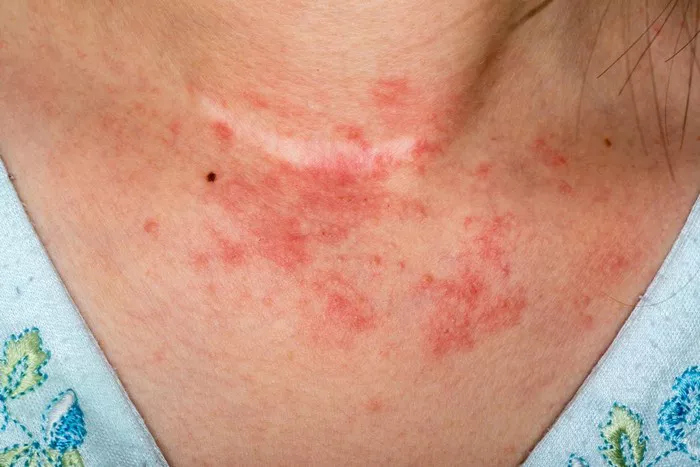Psoriatic arthritis (PsA) is a chronic inflammatory condition that affects individuals with psoriasis, a skin disorder characterized by red, scaly patches. This form of arthritis is an autoimmune disease, wherein the body’s immune system mistakenly attacks its own tissues, leading to joint pain, stiffness, and swelling. As with many chronic conditions, people often seek alternative and natural treatments to manage their symptoms and improve their quality of life. This article explores whether psoriatic arthritis can be cured naturally, examining various natural remedies, their effectiveness, and the scientific evidence supporting or refuting their use.
Understanding Psoriatic Arthritis
Psoriatic arthritis affects up to 30% of people with psoriasis. It can develop at any age but commonly occurs between the ages of 30 and 50. The exact cause of PsA is unknown, but genetic, environmental, and immune system factors are believed to play significant roles. Symptoms of PsA can vary widely among individuals and may include:
- Joint pain, stiffness, and swelling
- Fatigue
- Reduced range of motion
- Nail changes, such as pitting or separation from the nail bed
- Eye inflammation
Traditional medical treatments for PsA typically involve nonsteroidal anti-inflammatory drugs (NSAIDs), disease-modifying antirheumatic drugs (DMARDs), biologics, and corticosteroids. While these treatments can be effective in managing symptoms and slowing disease progression, they often come with side effects and may not be suitable for everyone. This has led many to explore natural alternatives.
The Role of Diet in Managing Psoriatic Arthritis
Anti-Inflammatory Diets
Dietary changes are among the most commonly suggested natural approaches to managing psoriatic arthritis. An anti-inflammatory diet focuses on reducing inflammation in the body, which is a key factor in both psoriasis and PsA. Such diets typically emphasize the consumption of:
- Fruits and Vegetables: Rich in antioxidants, vitamins, and minerals, which can help reduce oxidative stress and inflammation.
- Omega-3 Fatty Acids: Found in fatty fish like salmon, mackerel, and sardines, as well as in flaxseeds and walnuts, omega-3s have been shown to reduce inflammation and may alleviate joint pain.
- Whole Grains: Unlike refined grains, whole grains are high in fiber and nutrients, which can help regulate the immune system and reduce inflammation.
- Lean Proteins: Sources such as chicken, turkey, and plant-based proteins can support muscle health without promoting inflammation.
- Healthy Fats: Olive oil, avocados, and nuts provide monounsaturated fats that can help decrease inflammation.
Research supports the benefits of an anti-inflammatory diet for individuals with PsA. For instance, a study published in Arthritis Care & Research found that a diet high in fruits, vegetables, and whole grains and low in red meat and processed foods was associated with reduced symptoms of PsA.
Gluten-Free Diet
Some individuals with PsA may also benefit from a gluten-free diet. Gluten, a protein found in wheat, barley, and rye, can trigger an immune response in certain people, leading to increased inflammation. While not everyone with PsA is sensitive to gluten, those who are may experience symptom relief by avoiding gluten-containing foods.
SEE ALSO: The 6 Best Body Scrubs for Psoriasis
Herbal Supplements and Natural Remedies
Turmeric
Turmeric is a spice known for its potent anti-inflammatory properties, primarily due to its active compound, curcumin. Several studies have suggested that turmeric can help reduce inflammation and pain in various inflammatory conditions, including arthritis. A review published in the Journal of Medicinal Food concluded that curcumin supplementation could significantly reduce joint pain and improve function in individuals with arthritis.
Ginger
Ginger is another natural anti-inflammatory agent. It contains compounds like gingerol and shogaol, which have been shown to reduce inflammation and pain. A study published in Arthritis & Rheumatology found that ginger supplementation led to a significant reduction in pain and disability in patients with osteoarthritis, suggesting potential benefits for those with PsA as well.
Boswellia
Boswellia, also known as Indian frankincense, has been used for centuries in traditional medicine to treat inflammatory conditions. Boswellic acids, the active components of Boswellia, have been shown to inhibit the production of pro-inflammatory enzymes. Research published in Phytomedicine indicated that Boswellia extract could reduce inflammation and pain in people with arthritis, including PsA.
Lifestyle Changes for Managing Psoriatic Arthritis
Exercise
Regular physical activity is crucial for managing PsA. Exercise helps maintain joint flexibility, strengthens muscles, and reduces inflammation. Low-impact exercises such as swimming, cycling, and yoga are particularly beneficial for individuals with joint pain and stiffness. A study in the Journal of Rheumatology found that a combination of aerobic and resistance exercises improved physical function and reduced disease activity in people with PsA.
Stress Management
Chronic stress can exacerbate autoimmune conditions, including PsA, by triggering inflammatory responses. Stress management techniques such as mindfulness meditation, deep breathing exercises, and progressive muscle relaxation can help reduce stress levels and, consequently, inflammation. A study in Psychotherapy and Psychosomatics demonstrated that mindfulness-based stress reduction significantly decreased inflammatory markers in patients with chronic inflammatory diseases.
Adequate Sleep
Sleep is essential for overall health and well-being, and inadequate sleep can worsen PsA symptoms. Poor sleep quality is associated with increased pain perception and inflammation. Establishing good sleep hygiene practices, such as maintaining a regular sleep schedule, creating a restful sleep environment, and avoiding stimulants before bedtime, can improve sleep quality and reduce PsA symptoms.
SEE ALSO: The 6 Best Scalp Exfoliators for Psoriasis
The Role of Mind-Body Therapies
Acupuncture
Acupuncture, a practice rooted in traditional Chinese medicine, involves inserting thin needles into specific points on the body to relieve pain and promote healing. Some studies suggest that acupuncture can help reduce pain and improve function in individuals with arthritis. A systematic review published in the Journal of Pain found that acupuncture provided significant pain relief and functional improvement in patients with chronic pain conditions, including PsA.
Massage Therapy
Massage therapy can help reduce muscle tension, improve circulation, and promote relaxation, which may alleviate some symptoms of PsA. A study in the International Journal of Therapeutic Massage & Bodywork found that massage therapy significantly reduced pain and improved mood in individuals with chronic pain conditions.
Tai Chi and Yoga
Mind-body exercises such as Tai Chi and yoga combine physical movement with mental focus and relaxation techniques. These practices can improve flexibility, strength, balance, and overall well-being. A study in the Journal of Rheumatology found that yoga significantly improved physical function, pain, and quality of life in individuals with rheumatoid arthritis, suggesting potential benefits for those with PsA as well.
The Importance of Individualized Treatment Plans
While natural remedies and lifestyle changes can play a crucial role in managing psoriatic arthritis, it’s essential to recognize that there is no one-size-fits-all solution. PsA is a complex and individualized condition, and what works for one person may not work for another. Therefore, it’s important to work closely with healthcare providers to develop a personalized treatment plan that incorporates both conventional and natural therapies as appropriate.
The Limitations and Risks of Natural Treatments
It’s important to approach natural treatments with caution and to be aware of their limitations and potential risks. Some natural remedies may interact with conventional medications, leading to adverse effects. Additionally, while many natural treatments can help manage symptoms, they are not a cure for PsA. Psoriatic arthritis is a chronic condition that typically requires long-term management.
Conclusion
In conclusion, while there is currently no cure for psoriatic arthritis, natural treatments and lifestyle changes can play a significant role in managing symptoms and improving quality of life. An anti-inflammatory diet, regular exercise, stress management, adequate sleep, and mind-body therapies such as acupuncture and yoga can all contribute to reducing inflammation and alleviating pain. Herbal supplements like turmeric, ginger, and Boswellia may also offer benefits. However, it’s essential to approach natural treatments as part of a comprehensive, individualized treatment plan developed in consultation with healthcare professionals. By combining conventional medical treatments with natural approaches, individuals with psoriatic arthritis can achieve better symptom control and enhance their overall well-being.
Related Topics:


























